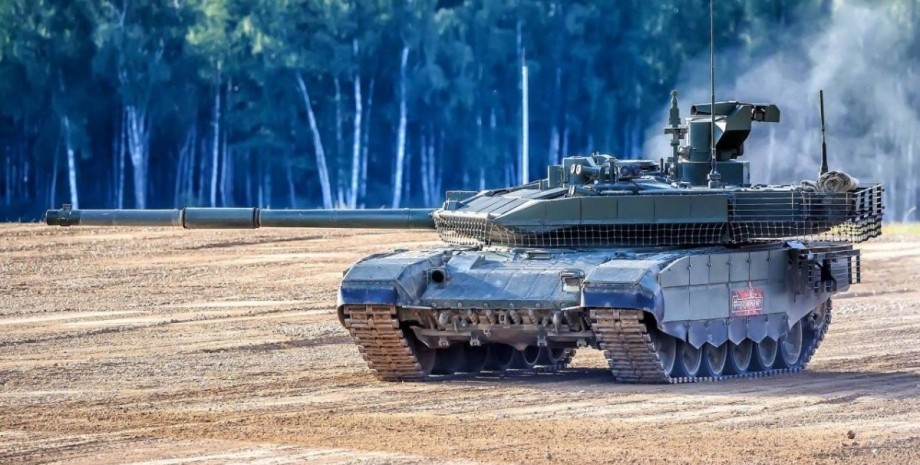
Weikhrt's article about the most perfect version of the Breakthrough T-90m and its participation in the war against Ukraine. The old proverb says, "The larger the tank, the louder it falls," and this can be fully attributed to the Russian main combat tank (VTT) T-90m. At one time he was called "the most advanced Russian armored vehicle. " He now holds his position in the fields of death in Ukraine. This armored beast was to become the best tank presented in Ukraine.
One of his appearance was to force Ukrainians to run. But in the case, he proved himself at all as expected. In fact, its ambiguous results in battle emphasize why the more perfect Russian tank complex T-14 "Armata" remained in the reserve throughout the war. It also explains why the Russians prefer to rely on their outdated Soviet T-72 tank for decades. Old T-72 is cheap and simple for mass production.
Their losses are not as detrimental to the Russian Armed Forces as the loss of a large number of T-90M or T-14 "Armat". Known as "Break-3", T-90M was adopted with great enthusiasm. Currently, reviews about him are less praised due to ambiguous results in battles. The T-90M was considered not only as a modernization of the original T-90, but also as a significant step forward compared to the legendary T-72.
The new T-90M is equipped with a 125-mm smooth-bore gun 2A46M-4, capable of fire on the enemy tanks at a distance of 4. 8 km, as well as use standard ammunition. However, since the beginning of the war in Ukraine, Russians have lost almost a hundred of these modern tanks. Russia visually confirmed 97 losses T-90, with a significant part of these losses are more modern T-90m. This proves that T-90m, despite its advanced characteristics, is not as invincible as the Russians thought.
Such losses also emphasize the constant problem to which both Russian and the US military still have to adapt completely: changing the nature of hostilities. The reason for the loss of such a large number of Russian tanks is partially a powerful park of Ukraine's drones and anti -tank weapons, which NATO supplied, such as Javelin. The drones have completely changed the dynamics of modern combat.
And this is a reality that many military planners in the capitals of major military states do not understand. As in the case of Americans with their aircraft carriers, the T-90M was regarded as a symbol of Russian military power. It was an example that the Russians used to convince themselves - and the whole world - that Russia came out of the decline of the post -Soviet era.
And since the T-90M proved to be ambiguous (not wonderful, but not terrible, as they say), it put the Russians in an uncomfortable position. As a result, the mediocre results of the T-90M in Ukraine serve as a strict reminder that no matter how advanced weapons are, it is only as good as the strategy, tactics and realities in the field of fighting are. The realities of Ukraine are such that the terrain of the battlefield is difficult to operate some tanks.
Due to participation in the war of large switches, as well as effective anti -tank weapons, many strategies will have to be updated (and therefore, platforms and ways of their use should change dramatically). The inability to adapt has led to a senseless destruction of systems similar to T-90m, which were once considered virtually perfect and capable of smashing everyone in their path. T-90M is not a complete failure. But he does not justify investments and noise around him. Brandon J.
Weikhert is a national security analyst, a former Congress employee and a geopolitical analyst who writes for The Washington Times, Asia Times and The-Pipeline. Author of the books "Winning Space: How America Remains a SuperPower", "Biohacked: China's Race to Control Life" and "The Shadow War: Iran's Quest for Supremacy". His next book, A Disaster of Our Own Making: How The West Lost Ukraine will be released on October 22 at Encounter Books. Wayerrt can be monitored on Twitter: @wethebrandon.










All rights reserved IN-Ukraine.info - 2022